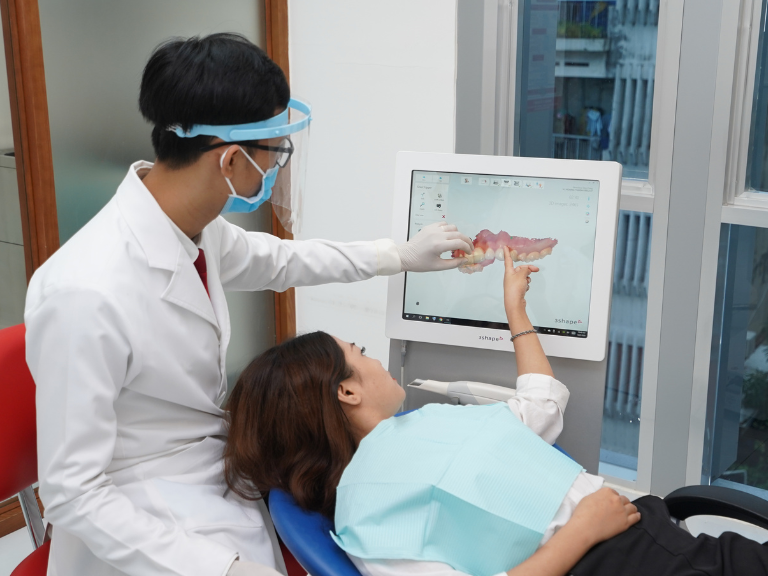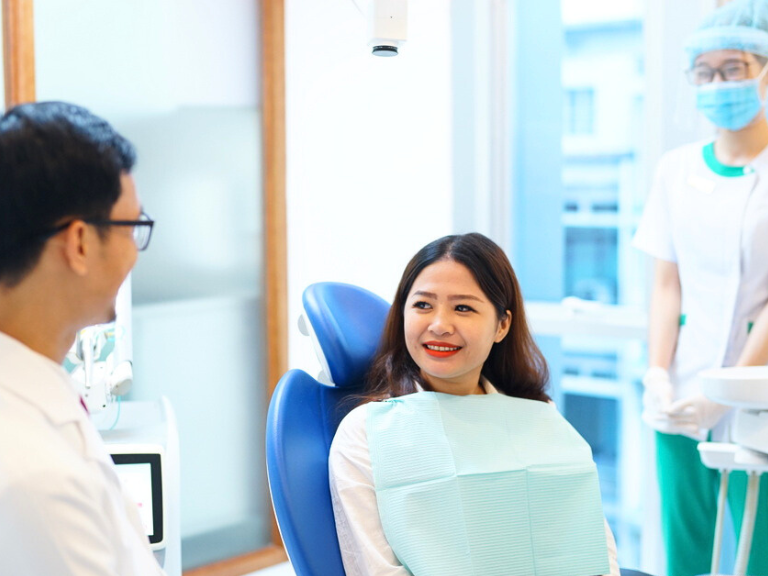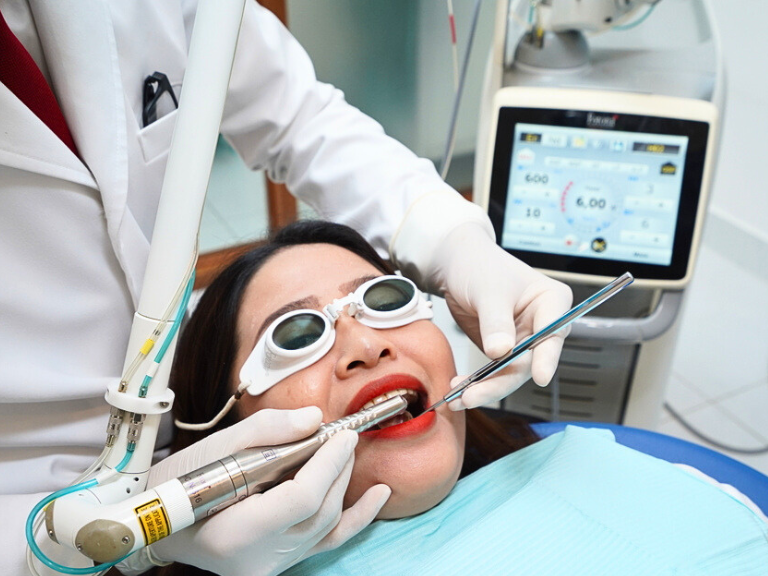DSD technology helps you preview your smile results with realistic 3D images. Learn more about digital smile design at Far East Dental Clinic now!
In the past, visualizing the results of dental treatment before it was performed was almost impossible. But now, with Digital Smile Design (DSD) technology, that has become a reality. This is a breakthrough in dentistry, offering patients the opportunity to see their new smile before starting treatment.
Thanks to the application of advanced technology, DSD has revolutionized our approach to treatment. More than just a support tool, DSD also helps us work closely with clients, delivering results that are not only beautiful but also perfectly suited to each individual face.
1. What is modern Digital Smile Design (DSD)?
Digital Smile Design (DSD) is a combination of modern diagnostic technology and specialized software that helps recreate a 3D model of the teeth, face, and jaw. Based on this, our doctors will develop a personalized treatment plan suitable for each client.
2. Benefits of Digital Smile Design (DSD)
Preview your future smile with realistic 3D simulations.
Customize your smile design according to your face, personality, and desires.
Minimize risks thanks to a more detailed and accurate treatment plan.
Increase satisfaction as clients are involved in the design process.

3. Who should use Digital Smile Design (DSD) services?
DSD technology is suitable for anyone who wants to improve the aesthetics of their smile or undergo specialized dental treatment. If you experience the following problems:
Dull, yellowed, or unevenly colored teeth.
Gaps between teeth, short teeth, or an unharmonious tooth shape.
Chipped, broken, or worn tooth enamel.
Gummy smile or tooth loss affecting aesthetics.
Digital Smile Design (DSD) can be the ideal solution to help you feel more confident when undergoing dental treatments such as:
Veneers
Dental crowns
Clear aligners
Dental implants
Teeth whitening
At Far East Dental Clinic, we always accompany you to ensure you receive the most perfect smile, harmonious with your face and style.

4. The Digital Smile Design Process at Far East Dental Clinic
Step 1: Consultation & Smile Analysis The doctor will examine, take photos, and analyze facial features to clearly understand your desires.
Step 2: 3D Scan & X-ray A modern 3D scanner is used to create an accurate model of your teeth, ensuring complete data for the design.
Step 3: Smile Design & Simulation The data is processed through DSD software, creating a 3D simulation that allows you to preview the results.
Step 4: Adjustment & Treatment Planning The doctor, together with you, will adjust the design until you are satisfied, then create a detailed treatment plan.
Step 5: Begin the Treatment Process The treatment is carried out according to the established plan, delivering the most perfect smile.



